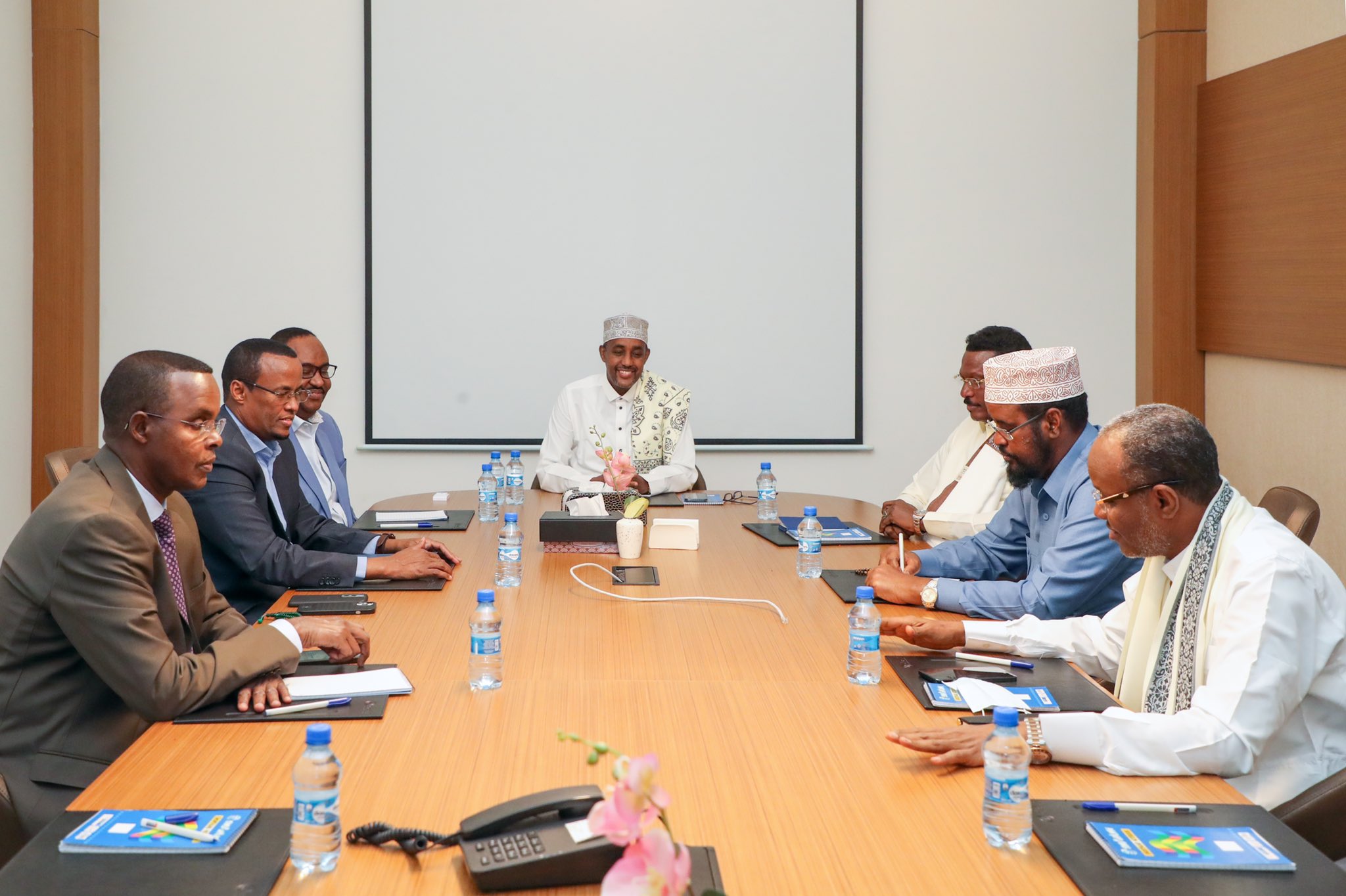NCC shoots down PM’s quest for security control as Farmaajo’s men tilt the scales

By T. Roble
GOOBJOOG NEWS|MOGDISHU: Somalia’s federal and regional leaders Sunday closed a six-day meeting which came amidst another bout of fall-outs between Prime Minister Mohamed Roble and outgoing President Mohamed Farmaajo at the tail end of 2021.
The meeting, under the auspices of the National Consultative Council (NCC) chaired by PM Roble released an 18-point communique that largely glossed over some pre-existing issues and steered clear of a strong commitment on how the recommendations would be implemented.
Conspicuously missing was the most contentious agenda item which sources said was the reason stretched for a week-security. PM Roble had, according to sources privy to the talks pressed for full control of the security forces. This was in addition to the previous mandate handed to him by Farmaajo in May 2021 to be in charge of the security apparatus responsible for elections.
THE SEE-SAW
But the balance of scales went in disfavour of Roble. Out of the seven members of the Council, four- Ahmed Qoorqoor (Galmudug), Abdiasis Lafta Gareen (South West) Ali Gudlawe (HirShabelle) and Banaadir Regional Administration (BRA) governor Omar Filish are allied to Farmaajo and naturally would shoot down the security vote.
The communique only urged AMISOM to ‘strengthen the security of the Presidential Palace.’ Opposition presidential candidate and Wadajir party leader Abdirahman Abdishakur had earlier in the week argued that security remained central to the implementation of the electoral process. “I want to ask those argue security shouldn’t be discussed at NCC or security shouldn’t be under the PM’s command; if security forces at the airport don’t take orders from the PM, how is he going to organise the elections? Or is it that he is not a PM but an election commissioner?” Abdishakur posited.
NEW TIMELINES
Besides security, the meeting also issued a revised electoral timeline which has been a common feature since November 2020 when the Lower House exercise was to commence. It set the completion of the elections for between January 15 and February 25.
The Council also revisited the question of selection of delegates which was flatly ignored despite it being set out as an electoral policy. According to the base agreement of September 17, 2020, delegates were to be appointed jointly by clan elders and civil society representatives and the lists made public.
However, since the Lower House elections started in October, it remains a mystery who the delegates are, whether they meet the 101-threshold and if belong to the bonafide sub-clans.
“The federal and state election implementation committees must verify that the delegates voting are those selected by the traditional elders,” the communique read in part.